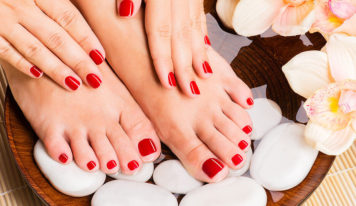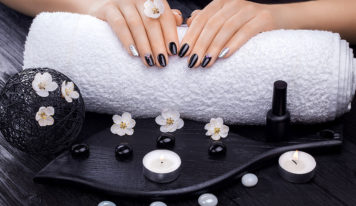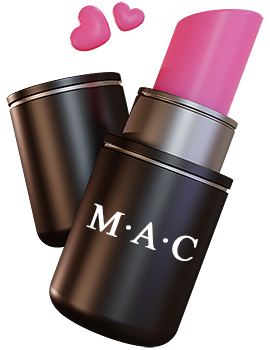Did you know that prolonged exposure of the skin to the sun is one of the leading causes of skin aging? Turning our faces up to feel the sun rays always feels good, but those pleasant rays include UV rays, which can damage your skin. This is why body skincare after sun exposure is important.
In this article, we’ll look at some effects of sun exposure and some ways we can care for our skin after we’ve been out in the sun.
-
Dryness.
Exposure to the sun dries out the skin and leaves it feeling rougher. Dry skin wrinkles easily, so you have to fix this as fast as possible:
Exfoliate.
When skin dries out some cells die. Dead cells accumulate on the skin surface and can lead to a dull, uneven appearance. Before applying anything on the skin, you need to get rid of these cells.
You can do this in the shower, as the steam from the shower will loosen the dirt and open up the pores. Use an exfoliating glove or scrub, gently rubbing the skin in a circular motion.
This will get rid of dirt and dead cells, making way for new cells to grow and preparing the skin to receive any moisturizers. The scrubbing motion also stimulates the circulation of blood carrying valuable nutrients to the skin, so your skin looks and feels fresh.
Hydrate.
Hydration is an important part of proper skincare after sun exposure. Apply the moisturizer on the skin that is still damp to lock in the moisture. Use a moisturizer containing ingredients that attract and hold water, like hydrolyzed collagen or hyaluronic acid.

Keep in mind that UV rays lead to a buildup of free radicals in the skin that damage it not only while you’re out in the sun but also long after you’ve gone indoors.
Use a moisturizer that contains antioxidants like vitamin E or C, which help to repair cells damaged by the free radicals. Moisturizer is best applied in the evening, as the skin repairs itself at night while we sleep.
Drink Lots of Water.
The body loses a lot of water when you’re out in the sun and this will dry out your skin. Drink lots of water during the day to constantly replenish lost water, and later on in the evening, drink some more.
Take a Cold Shower.
Cold water stimulates the skin and makes it more elastic. This means fewer wrinkles. It also closes the pores and keeps moisture in. Hot water, on the other hand, dries the skin and opens up the pores. So don’t take a hot shower immediately after sunbathing. Later on, when its cooler, you can do so.
-
Sunburn.
Sunburn leads to painful, sensitive skin, with the surface of the skin appears red. Avoid sunburn as much as possible, as it damages the collagen and elastin in the skin, and the cell DNA as well. Long-term damage can lead to sagging skin tissue, wrinkling of skin, and skin cancer. Make sure you apply a good sunscreen before going out into the sun. Sometimes, however, in spite of all your efforts, you may still experience sunburn.
Here’s how you can deal with it:
Soothe the Skin.
To relieve that burning sensation and reduce the sensitivity of the skin, use a lotion with anti-inflammatory ingredients to lessen the burning feeling and the redness. Aloe Vera gel is a popular and effective treatment for sunburn. It rehydrates the skin and has an immediate cooling effect that is very refreshing.
Repair the Skin.
Use a regenerating oil with lots of vitamin E to repair damaged skin cells and relieve the unpleasant burning effect resulting from sunburn.

Protect the Skin.
Apply sunscreen before you go out, and renew it every ninety minutes, especially in strong sunlight. Apply a double layer on sunburnt parts of the skin, as they are weaker and more exposed. Use a mineral sunscreen, which is better for sensitive skin than a chemical-based sunscreen.
Avoid Harsh Products.
Staying away from harsh skin products is an important aspect of body skincare after sun exposure. The skin is vulnerable and sensitive after sunburn, and the last thing you want to do is to subject it to harsh treatments.
Avoid products containing harsh ingredients that dry out the skin, like anti-acne products. Essential oils are popular for their natural benefits, but avoid using them in their pure form, as they can also irritate the skin.
-
Destruction of Collagen Fibers.
Prolonged exposure to the sun leads to the destruction of collagen fibers which hold the skin together, resulting in sagging skin and wrinkles. This leads to prematurely- aged skin and pigment spots. Vitamin C, which protects the skin from oxidation and is necessary to renew collagen, is also depleted.
Proper body skincare after sun exposure is important to prevent this:
Restore Vitamin C.
Use a vitamin C rich treatment daily to restore and replenish the vitamin C in your skin. This will in turn renew collagen weakened by exposure to the sun and strengthen your skin immune defenses as well. Vitamin C will also lighten age spots and even out your complexion.

Renew Collagen.
Renewal of collagen is also an important aspect of body skincare after sun exposure. Do this using plumping and regenerating treatments containing fragmented hyaluronic acid, salmon DNA, and pentapeptides. The treatments you use should also have abundant antioxidants to eliminate harmful free radicals formed due to exposure to UV rays.
Care for Your Lips.
Lip care is an oft-forgotten aspect of body skincare after sun exposure. Lip tissue is delicate, and the lips often get chapped after a long day in the sun. Use a hydrating lip balm throughout the day to ensure your lips don’t dry out.
Final Words.
Proper skincare after sun exposure is crucial as it will keep your skin looking young and healthy regardless of your age. It’s a simple and affordable routine to keep, and the benefits are worth the effort. In this article, we discussed a few harmful effects of too much exposure to the sun and also looked at some effective remedies to counter the effects.
Also read the article: How to Care for the Skin of the Neck and Decollete?
































